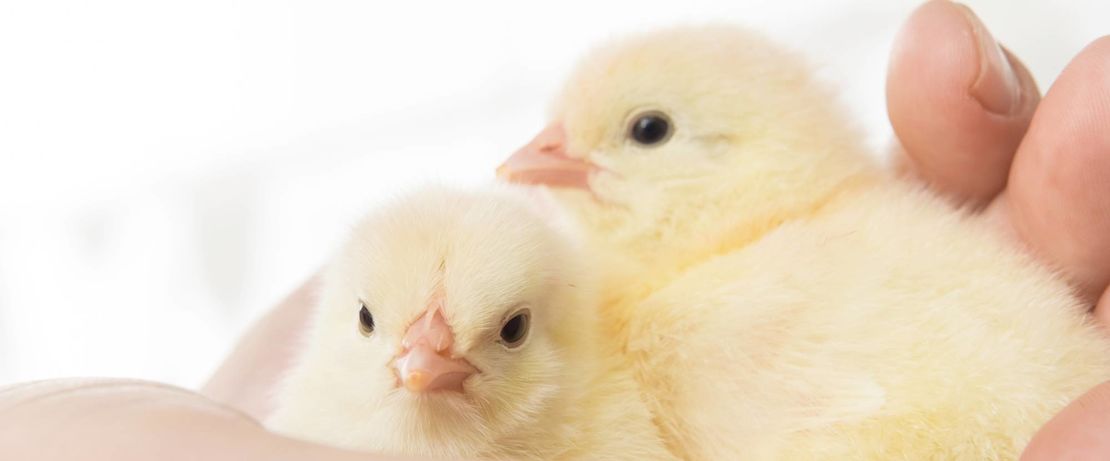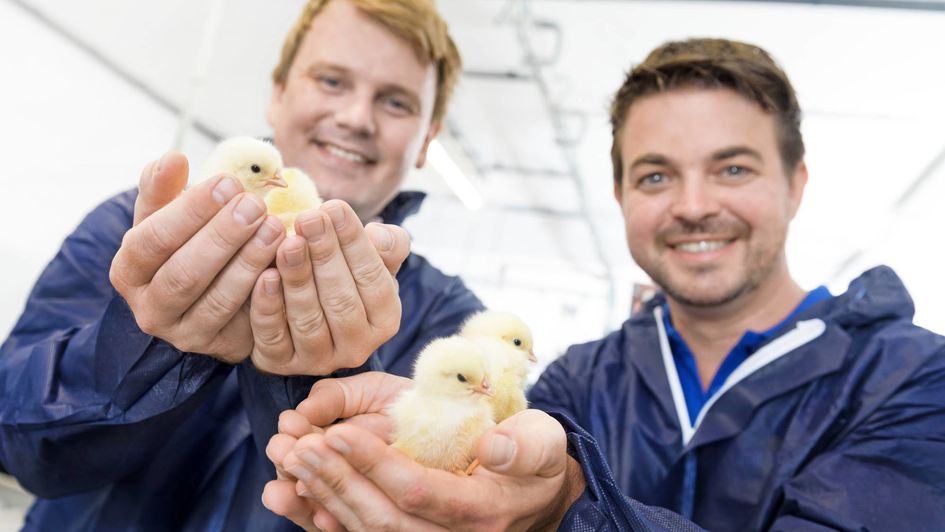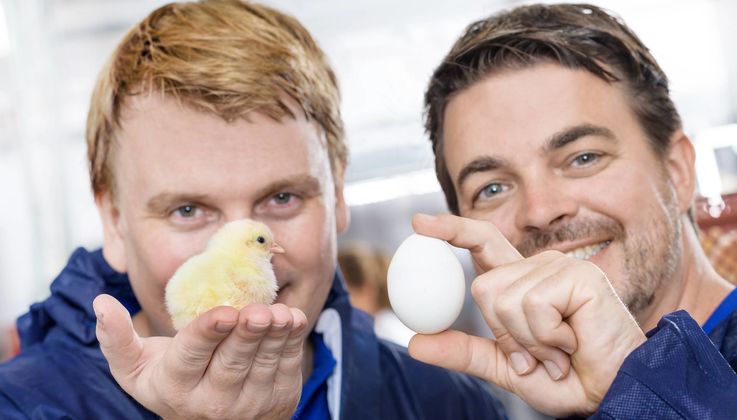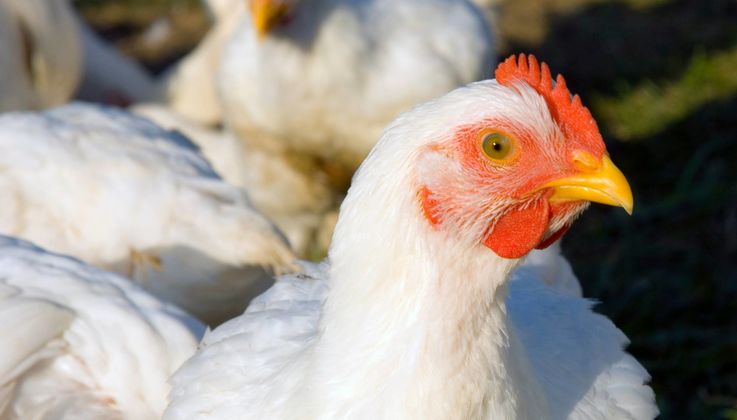
The egg rescuers
Every year, more than four billion male chicks are hatched around the world, only to be killed immediately. According to Dutch start-up company In Ovo, this is not simply an ethical problem; it is also a loss-making business model. Evonik has been supporting In Ovo's rescue mission since 2018.
“Sort out the good ones from the bad ones” is the well-known instruction given to Cinderella. Her task is to sort lentils by quality. While the good ones will be used to make lentil soup, the bad ones will be disposed of as useless. Yet this instruction is not simply the stuff of nostalgic fairy tales. It is a modern reality! Around the world, the poultry industry applies this method millions of times a day to separate newly hatched chicks by gender. The useful—female—chicks get to grow into hens that lay eggs and/or provide meat to feed people. The male chicks cannot lay eggs, nor do they put on enough weight to be used as chicken meat. They are therefore regarded as “bad”, which means they are sorted out and macerated or gassed. An increasing number of consumers regard this as an unethical practice, which gives them a bad conscience or even stops them eating poultry and eggs. Here, at the latest, the economic impact of the screening process becomes evident.
Starting in the egg
Evonik believes that it has a responsibility to work towards more sustainable nutrition, including production methods that enhance animal welfare. That is why Evonik works with the Dutch start-up company In Ovo. In ovo is Latin for “in the egg” and the company's name speaks volumes: The egg was the starting point for founders Wouter Bruins and Wil Stutterheim. The idea for their start-up began as a business case project during their business studies course at Leiden University. Neither Bruins nor Stutterheim has a background in poultry farming, but they were looking for a problem where they could drive forward the search for a solution. That was how they stumbled across the culling of chicks. Since the gender of the chicks is not normally known in the egg, all eggs have to be incubated until they hatch. That increases the space and energy required, which in turn raises the cost because ultimately half of the chicks, i.e. those that are male, are discarded. In Ovo’s founders put the problem in a nutshell: "At present one rooster has to die for every hen.” In addition, all chicks are sorted manually on a conveyor belt—which entails further costs.

Together with their university, by 2013 Bruins and Stutterheim had developed a cost-effective screening process to determine the gender of the chick “in ovo” without damaging the egg. A tiny, resealable hole is made in the egg to remove a sample, which is tested for certain markers that indicate the gender of the chick at a very early stage of development. This “egg sexing” process has proven effective in lab conditions, but has not yet been rolled out for commercial use. Since 2018, Evonik has been supporting this start-up with capital and expertise—a future-oriented investment to enable In Ovo to develop a market-ready screening prototype. The founders expect it to be ready for commercialization this year.
The first step
The groundbreaking feature of their method is the throughput speed: The In Ovo process can screen thousands of eggs each minute. Speed is of the essence given that it takes just three weeks from laying the egg until it hatches and there is rising demand for chicken meat and eggs. In addition, the screening process is automatic, making it cheaper than conventional sorting of chicks. If an egg is identified as being male in the screening process, it is sorted out and does not take up any of the places reserved for female eggs in the incubator.
However, for the founders of In Ovo that is only the first step. Although they cannot prevent embryos in eggs developing into male chicks, they have made sure they can be spared death by gassing or maceration. The goal now is “repurposing”—finding (alternative) uses for the eggs that are not incubated. After all, fertilized hens’ eggs contain large amounts of high-quality proteins and other nutrients. Following on from its gender screening, In Ovo has therefore set up an egg repurposing project under the working title EGGR. Even in its initial phase, this project has been granted funding by the European Union. In Ovo’s ethical and economic commitment raises hopes that culling male chicks will soon be a thing of the past.



